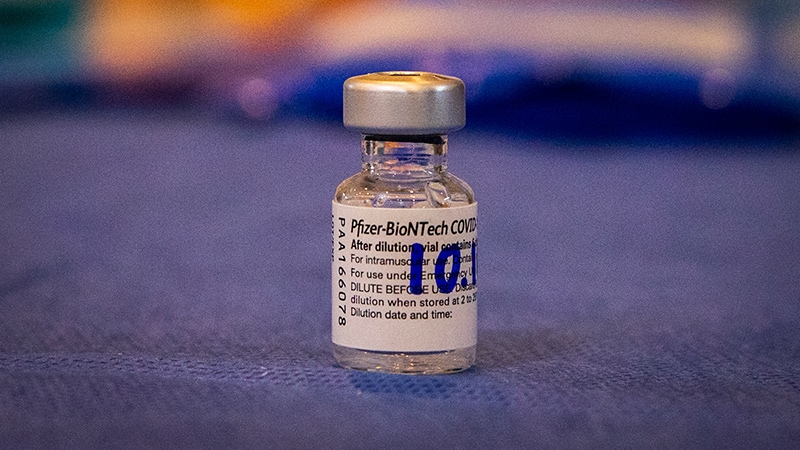After weeks of anticipation, both the Food and Drug Administration (FDA) and Centers for Disease Control and Prevention (CDC) have now weighed in on COVID-19 booster shots. And they’ve decided that four groups of people, which includes a huge swath of the population, should be eligible for the shots.
Here’s who now qualifies for Pfizer/BioNTech COVID-19 booster shots, according to a CDC press release outlining the recommendations:
- People who are 65 years and older and those who live in long-term care facilities should get booster shots.
- People who are between the ages of 50 and 64 who have an underlying medical condition that puts them at risk for severe COVID-19 symptoms should get a booster shot.
- Those who are between the ages of 18 and 49 who have an underlying medical condition that makes them more likely to develop severe COVID-19 symptoms may get a booster shot if they wish, depending on their individual potential risks and benefits of the shot.
- People between the ages of 18 and 49 who face an increased risk for COVID-19 exposure and transmission due to their occupational or institutional setting may receive a booster shot if they want. But the decision to do so depends on the risks and benefits of the shot for each individual.
For all of these groups, the recommendations only apply to those who received a Pfizer/BioNTech COVID-19 vaccine for their first doses. And they can only get a booster dose if it’s been at least six months since their first shots. Neither the FDA nor the CDC has ruled yet on whether or not it’s okay for people to mix and match which vaccines they get (if, for instance, someone got the Moderna vaccine initially and gets a Pfizer booster shot).
The COVID-19 booster shot conversation kicked off in the U.S. in earnest when the White House announced a plan to offer third vaccine doses to the general public last month. Based on data mainly from Israel, it appeared that protection against COVID-19 infections (but not so much against hospitalization and death) was waning among those who received their first shots early on. After an FDA advisory panel recommended authorizing Pfizer booster doses for specific groups of people (primarily those over age 65), the agency updated the vaccine’s emergency use authorization to allow that use. Then, over the past two days, the CDC’s Advisory Committee on Immunization Practices (ACIP) met to discuss the potential recommendations around who should actually receive booster doses.
Some of the most compelling evidence for the use of COVID-19 booster shots that ACIP saw yesterday was for older populations, many of whom were prioritized during the initial vaccine rollout phase and are generally at a higher risk for severe complications from the virus. The panel weighed the potential benefits and risks of administering third doses to other age groups (including the risk for myocarditis, which is most likely to affect young men), underlying medical conditions, and certain occupational risk factors that make them more likely to be exposed to the virus (especially with the highly transmissible delta variant now dominant in the country).
The panel also discussed the potential value of booster shots for health care employees and other essential workers. In areas of the country where COVID-19 transmission is especially high and the population is less likely to be vaccinated, some ACIP panelists argued that booster shots may help keep those facilities and businesses well-staffed and their employees’ morale up.
But the truth is that booster doses are still a controversial topic in the U.S. right now. Some experts (including the World Health Organization) argue that we shouldn’t be administering additional doses of the vaccines while so much of the world hasn’t had access to the initial shots. And, according to the data presented to ACIP, the potential value of booster doses is much higher for specific groups, specifically the elderly and immunocompromised, than it is for the general public—even among those with underlying conditions.
Now, with the CDC and FDA recommendations, many people in the U.S. are eligible to receive a COVID-19 booster shot. If you fall into one of the above categories and are interested in whether or not getting an additional dose is the right choice for you, talk to your health care provider about the potential risks and benefits of the shots. And remember that for the vast majority of us, the initial COVID-19 vaccine doses still provide significant protection against hospitalization and death due to the virus. Along with other public health strategies, such as wearing a mask indoors and avoiding crowds, getting the initial COVID-19 vaccine doses is the most effective method we have of containing the pandemic.
Related:
Note: This article have been indexed to our site. We do not claim legitimacy, ownership or copyright of any of the content above. To see the article at original source Click Here

.jpg)










